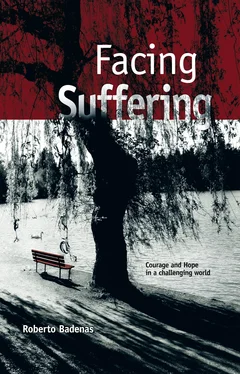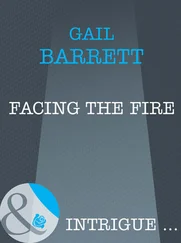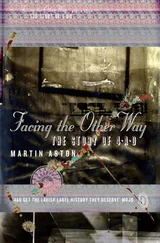Natural suffering
There are many kinds of pain or suffering that have a functional cause we all know and understand: unmet physical needs such as hunger or thirst, tiredness after hard work, strain from the effort an athlete puts into exercise, the discomfort caused by heat or cold, the pain that comes with childbirth as a physiological function necessary for giving life, etc. These kinds of suffering are relatively easy to cope with. We are all willing to suffer to a certain extent when we understand why or we hope to gain something better in return: to earn an income, keep in shape, have a family…. Each day millions of men and women do difficult things because of their work, braving inclement weather, difficult work schedules, harsh working conditions, or social injustices. For all of us—though, of course, for some more than others—suffering is an integral part of daily life.
Most privileged people suffer, too, but often for different reasons. Apart from having to face the inevitable ups and downs of life we all experience, many affluent individuals inflict additional tortures on themselves, investing their considerable resources and effort in cosmetic treatments, gym workouts, fad diets…or in plastic surgery to correct the shape of their noses, change the size of their breasts, implant hair in bald spots, or inject Botox into their wrinkles. Why? Because even when we are enjoying great privileges, we cope poorly with the limitations of life, our physical imperfections bother us, and we are willing tosuffer a little in exchange for other benefits. This type of voluntary suffering is accepted, since it is a way of fighting the ups and downs of our human condition with the hope of relief, however fleeting.
Avoidable suffering
Besides these kinds of assumed suffering, there are numerous sorrows that are totally avoidable. They are the result of our own behavior, the fruit of the misuse of our freedom. From the moment that we have the power to choose for ourselves, we must reap the consequences. Our unhappiness is not only a technical problem: it is also, and perhaps mainly, the result of us taking the wrong path.
We are all more or less guilty of losing some points from the “driver’s license” of our lives.2 Imprudent choices, risky behaviors, bad habits, irresponsible acts, infidelities…an endless list of mistakes reminds us that many decisions come with painful consequences, mostly avoidable ones. Nevertheless, we often risk suffering, and even death, because we don’t resign ourselves to respect certain limits. Unless we make better choices, we can all continue to suffer needlessly and reap painful and unnecessary consequences. In this regard, there is a way for everyone to prevent some pain. And the laws of life have their own, often unforgiving, logic. We are limited by time and space. Some of our actions have irreversible consequences that eventually will reveal either the benefits of our good decisions or the seriousness of our mistakes. We can avoid behaviors that expose us (and others) to unnecessary suffering. An unhealthy lifestyle causes countless problems.
That’s reality, and it doesn’t make sense to claim a right to not suffer from it. What would make sense would be to claim the right to abstain from deliberately harming ourselves and others, and at the same time explore our possibilities for reducing discomforts from other sources. For this we would have to assume that we do not have the right to inflict pain on our fellow man under any circumstances, except to protect him from worse harm. We can take inspiration from medical ethics, which requires us to combat pain by all means, knowing that sometimes it is necessary to do some small harm so that a greater good can come of it.3
Can we claim the right to be absolutely free from pain? The affirmative answer is based on the fact that, if it were possible, it would be cruel not to try to achieve that goal. In an ideal situation, all human beings would be able to access palliative care services and be able to count on appropriate analgesic treatments to meet the needs of each individual. But it doesn’t happen like that. The distribution of resources remains unequal and unjust. And we still complain that much of human suffering continues to be, ultimately, avoidable.
Destructive suffering
But not all instances of suffering are avoidable. And they cannot be compared to one another. The hunger pangs a person feels who knows she is going to eat soon are not nearly of the same caliber as the desperate, ravenous hunger someone feels who knows he will not be satiated in any way because he cannot obtain food. In this case, hunger pangs lose their functional purpose and become an added torture. Rather than leading us to a solution, our suffering is compounded by the powerlessness of experiencing to what extent we are vulnerable, to what extreme our own bodies are capable of turning against us.
So, much of our suffering, far from being natural or “deserved,” is terribly unjust. Our friend Sara took good care of her health and still developed cancer. Our wonderful neighbors’ son, a very careful young policeman, died in a senseless traffic accident. Among my work colleagues are some excellent parents who gave their children the best education and yet have not been able to prevent them from falling into the clutches of drug addiction. And to these examples we could add many, many more.
So we can say that in some cases we are alive thanks to pain’s protective function, but in others we succumb due to its destructive consequences.44 When we reach certain limits, and we face situations without solutions, we must abandon the idea of positive suffering. All too often, pain becomes a sinister addition that destroys us without giving anything in return. If a “healthy” suffering exists, warning us to live better, then there are also destructive torments that defy reason. These we suffer from without any benefit in return, and they make us worse or even lead to death.
Chance and tragedy
Those of us who live in democratic societies, accustomed to expecting responsibility from everything, tend to think—without grounds—that behind every misfortune there must be someone responsible. But this is not always true. It is correct that if we all did our part, and if we were able to make use of all the means at our disposal, we would avoid many misfortunes. But may be not all. Social injustices and economic inequalities cause a lot of gratuitous harm, but random chance also exists, and catastrophes—natural or man-made—will continue to be a reality. A tsunami affects thousands of people, but we cannot pinpoint its direct cause. Even so, parents will blame themselves for letting their children go to the beach that day, victims’ family members will blame the weather service for not issuing a warning in time, and the survivors will feel guilty for being alive.
That culpability is not real. There are things for which no one is directly responsible. But the feeling of guilt is one of the most stubborn blights of humanity, the cause of many of its problems. The feeling of guilt is both the lucid flash and the bitter dregs of the human conscience.5
Traditional approaches
Clearly, “natural” explanations of suffering are only satisfying to a point. From time immemorial, man has tried to understand the mystery of pain, resorting to explanations that go beyond the realm of our existence. All religions offer metaphysical answers to the question of evil. Some explain it as a result of a violation of the natural order (see the notion of taboo in animistic societies); others, as divine punishment for the sins of humanity (theistic religions); and still others, as a privileged means for progressing, purifying oneself, or purging faults (Eastern traditions).
The attempt to explain suffering within a philosophical or religious concept of the world is marked by various ideologies. Depending on the notion that one has of life, one explanation or another will be given for the question of pain and it will be spoken of with a specific language.
Читать дальше












